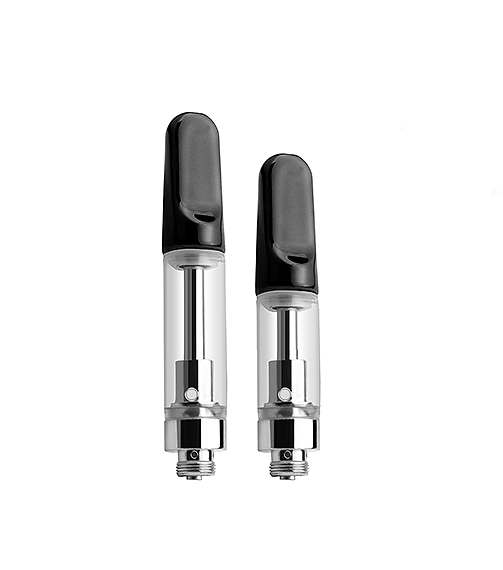Exactly How to Find the Perfect Disposable Carts That Are Cost-Effective and lasting
In the realm of disposable carts, the mission for sustainability and cost-effectiveness can frequently seem like a balancing act. By comprehending the subtleties of sustainability versus price in cart option, one can make informed decisions that not just profit the atmosphere yet additionally their spending plan.
Understanding Sustainability Vs. Cost in Carts
Sustainability and cost considerations play important functions in establishing the viability of disposable carts for various industries. When assessing the sustainability of disposable carts, aspects such as the products made use of in production, the cart's life-span, and its disposal approach must be taken into account. Going with carts made from recyclable products or those with a long lifespan can add to an extra lasting option. Furthermore, picking carts that can be easily taken apart for reusing at the end of their life cycle can even more boost their sustainability.
On the various other hand, expense considerations are equally important (cake disposable carts). While lasting materials and functions may come at a higher initial cost, they can lead to long-term financial savings by lowering the demand for regular cart replacements. Carrying out a complete expense analysis that includes not simply the acquisition cost yet likewise upkeep, disposal, and replacement costs is important in making a financially audio choice
Stabilizing sustainability and cost is key to discovering the best disposable carts that are both ecologically friendly and financially feasible for services across different sectors.
Elements for Assessing Cart Sustainability
When examining the sustainability of non reusable carts, an extensive evaluation of vital factors is necessary to make informed decisions regarding their ecological influence and longevity. One important variable to consider is the materials utilized in the cart's building and construction - Cake bar carts. Going with carts made from recycled or recyclable materials can dramatically lower the overall environmental footprint. Furthermore, examining the cart's production procedure is vital as carts produced using sustainable methods or energy-efficient approaches add positively to their sustainability.
One more essential facet is the cart's durability and reusability. Picking carts made for numerous usages or those with exchangeable parts can extend their life-span, therefore reducing the need for constant substitutes and lessening waste generation. Evaluating the cart's end-of-life disposal options, such as recycling or composting, is necessary in establishing its total sustainability.
Considering elements like the cart's power effectiveness, carbon footprint, recyclability, toughness, and end-of-life monitoring options can assist stakeholders make notified decisions when choosing sustainable disposable carts.
Cost-Effective Buying Tips for Carts
To make cost-effective selections when purchasing carts, customers can take advantage of contrasting prices throughout different sellers and considering long-term resilience. When looking for cost-effective alternatives, it's vital to not just concentrate on the preliminary rate however also consider the long-term financial savings that come from long lasting carts that call for fewer replacements.
One more cost-saving pointer is to keep an eye out for promotions, price cuts, and sales. Many stores use seasonal discount rates or package deals that can considerably reduce the general expense of buying carts. Furthermore, taking into consideration purchasing wholesale can typically result in lower prices each, specifically if you prepare for needing several carts.
In addition, checking out different brand names and materials can also aid in finding a cost-efficient cart alternative. Some brand names may use similar high quality carts at lower rates, or particular products might be much more cost effective while still being sturdy sufficient for your needs. By investigating and comparing various options, consumers can make informed decisions that balance cost-effectiveness with high quality.
Evaluating Product Effect On Sustainability
In assessing the cost-effectiveness of non reusable carts, a crucial facet to consider is the impact of different materials on environmental sustainability. Selecting materials that are eco-friendly, recyclable, or made from renewable energies can significantly reduce the carts' ecological impact. For instance, selecting carts made visit site from recycled plastics or bioplastics originated from plant-based sources can help minimize the general carbon discharges and energy consumption related to their production. Additionally, picking materials that are easily recyclable at the end of the cart's life process advertises a more circular economic climate and minimizes waste sent to land fills.

Locating the Right Equilibrium for Your Demands
Striking the ideal equilibrium between sustainability goals and operational needs is a pivotal consideration when selecting disposable carts for your specific requirements. To achieve this balance, it is necessary to conduct a detailed analysis of your company's constraints and top priorities. Begin by specifying your sustainability goals, such as lowering waste or decreasing ecological influence, and straighten these with your functional needs, like resilience and cost-efficiency.
When evaluating potential non reusable cart alternatives, focus on functions that support both sustainability and functionality. Look for carts made from naturally degradable or recyclable products without endangering on top quality or efficiency - Cake Cart. Consider the cart's design and comfort designs to guarantee it fulfills your functional requirements while also being eco-friendly
Furthermore, engaging with vendors that share your sustainability worths can improve your look for the ideal non reusable carts. Collaborating with eco mindful companions can cause cutting-edge solutions that satisfy your particular demands while remaining real to your sustainability purposes. By finding the ideal equilibrium between sustainability and operational needs, you can identify disposable click reference carts that are both cost-effective and environment-friendly for your company.
Conclusion
In final thought, when looking for the excellent non reusable carts that are both sustainable and affordable, it is vital to consider elements such as worldly influence, longevity, and recyclability. Balancing these facets can lead to a much more eco-friendly and economically sound selection. By evaluating the sustainability of carts together with their cost-effectiveness, customers can make enlightened choices that straighten with their requirements and worths.
When examining the sustainability of non reusable carts, variables such as the products used in production, the cart's lifespan, and its disposal technique should be taken into account.When evaluating the sustainability of disposable carts, a thorough analysis of essential aspects is vital to make enlightened decisions he has a good point regarding their environmental impact and longevity. Additionally, assessing the cart's manufacturing procedure is essential as carts created utilizing sustainable methods or energy-efficient techniques contribute positively to their sustainability.
